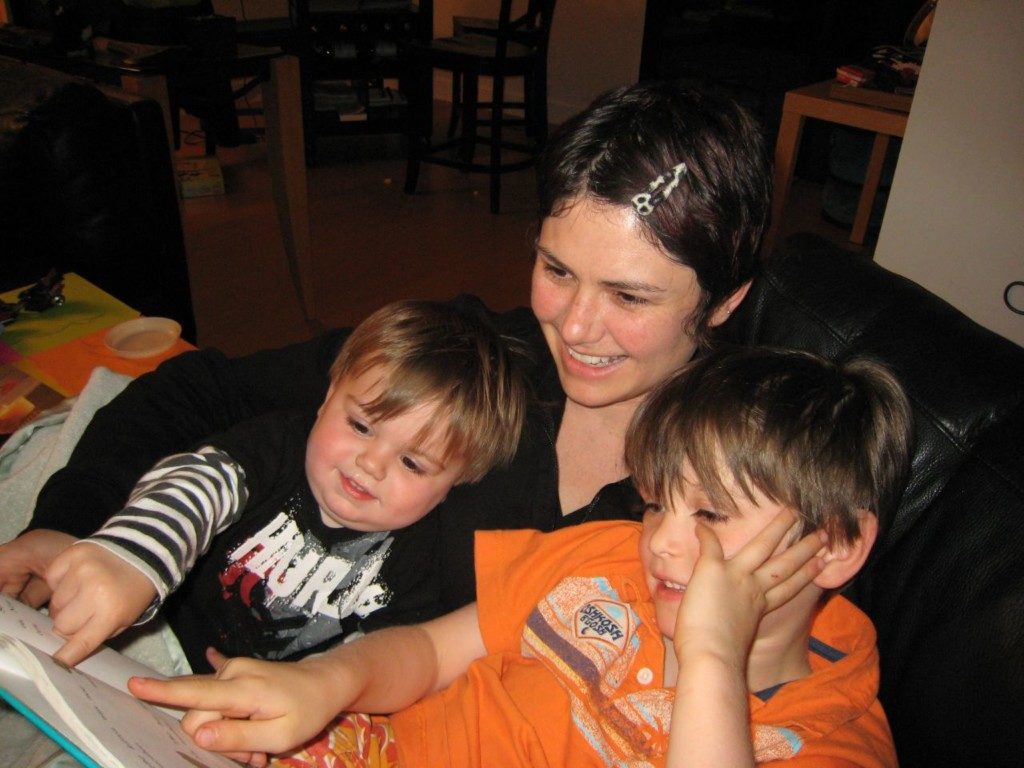
Two new books lend intellectual heft to the idea that families are the primary educators of children. Photo via Neeta Lind.
I finished a couple of books that bear upon the fate of the ordinary family in its hope to maintain authority over its own affairs, and specifically the governance of its children.
Herewith, a brief report.
Professor Melissa Moschella’s book asks the right question: To Whom Do Children Belong? Parental Rights, Civic Education and Children’s Autonomy. (Cambridge U. Press) The author is a philosopher in the natural law tradition. I have read some of her previous work and can, with great confidence report that she is a master of the Aristotelian-Thomistic approach to ethics, private and public.
Her book proceeds from a lesson or two in the method, gradually to a description of the problem and on to the solution. If nature is the method, the problem is the corruption of what is nature by society’s and government’s collision against the authority of the parent, and (most flagrantly that) the ordinary and low-income family. The primary scene of the crime is conscription of the child for the school called “public” and for a message that is predictable only in its exclusion of anything transcendental. Its effect on the child, the parent and society in quite predictable. The experience of responsibility is left to both parent and child, all to injury of a society drifting toward sheer confusion in our common life and in what is supposed to be home sweet home.
Now, some readers will find the natural law style and picture a bit stiff. My advice: stick with it. The payoff is substantial. My only would-be clarification is the author’s use of the term “right” to identify both legal rights and legal “powers”. The latter term refers to one person’s control over some aspect of another’s life. The boss had the power to terminate my employment; The parent has the power (not merely the right) to direct her child in his education. Every parent has it, but when it comes to formal education only some of us can afford to exercise it.
This other book is Why Liberalism Failed (Yale U. Press). It’s author, Patrick Deneen, is professor of Political Science at Notre Dame. He is easy reading, even fun. He is convinced that our base conception of the liberal society as the use of government to help people do what they please to the point of danger to others is a recipe for an effective tyranny.
It is a society organized for the benefit of the strong.
And the strong employ their freedom to become even stronger.
By contrast, a Burkean society is organized for the benefit of the ordinary who benefit for the societal norms that [all] are expected to follow. A society can be shaped for the benefit of most people. By [honoring] informal norms and customs that secure the path to flourishing for most.
Though Deneen does not use the term, the world “subsidiarity” could be fairly ascribed to his thought. A handy word, common in European constitutions and papal encyclicals, subsidiarity is roughly the principle that right and power are best located at the level nearest those affected by decisions and in the hands of those who know them. The preference for parental control follows.
Deneen proceeds from parent and family to the wisdom of the society that puts its trust in small units rather than government as we know it. The Church, the Scout Troops, the book club, the Good Will fit the type. We awaken our humanity in intercourse with the familiar, not with the distant abstraction of government liberalism has gradually drawn us from the chumminess of clubs and societies to the emptiness of the “liberated” self.
For the apostle of school choice these two, fairly short volumes are fuel to the tank. They represent a new literature of the benign power of the familiar.